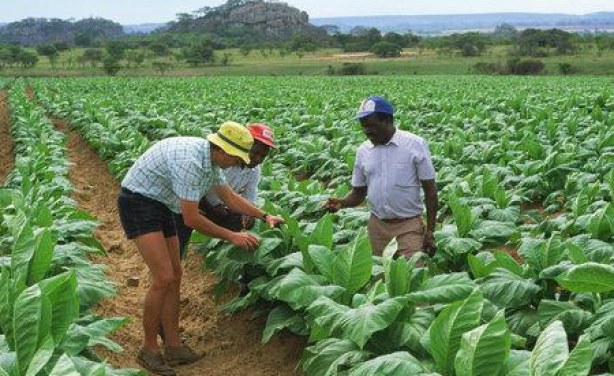Zimbabwean Farmers May Make Legal History
MydeaMedia
Zimbabwean farmers are set to take SADC to Africa's top human rights body for their failure to force Zimbabwe to respect the high court's ruling against forced eviction. This is the first time in legal history that a group of heads of state is being cited by an individual as the respondent in an application to an international court.
- Zimbabwe: Farmers to Take Land Case to Top African CourtTwo dispossessed farmers in Zimbabwe are set to take their case against the Southern African Development Community (SADC) to Africa's top human rights body, after the suspension of the regional rights court last year.All 15 SADC leaders have been cited as respondents in the landmark legal case, launched by farmers Luke Tembani and Ben Freeth, in place of his late father-in-law Mike Campbell. The application was originally made to the SADC Tribunal last year and is the first time in legal history that a group of heads of state is being cited by an individual as the respondent in an application to an international court.The application to SADC was the last legal challenge that Campbell would make, after spearheading an historic legal battle in the Tribunal against Robert Mugabe and his land grab campaign. The Tribunal ruled in 2008 that the land grab scheme was unlawful, and ordered Mugabe's government to compensate farmers who lost land, and protect the remaining farmers from future illegal seizures. That year, just months before the Tribunal ruled in his favour, Campbell, his wife and Freeth were abducted and severely beaten. Their homes were then burned down in 2009 and Campbell eventually died in April last year, as a result of the serious injuries he had received.The Mugabe regime meanwhile ignored the Tribunal's rulings and was repeatedly held in contempt because of ongoing land seizures and threats against the remaining commercial farming community. But the biggest shock was yet to come when SADC leaders last year suspended the court, instead of taking Mugabe to task.Freeth and Tembani, who was evicted from his farm in 2009, are now taking their case against SADC leaders to the African Commission on Human and People's Rights, in the hope the case will be handed to the Commission's human rights court.Freeth told SW Radio Africa on Thursday that the Commission is meeting in The Gambia next week, where their challenge is set to be debated. He explained that if the Commission agrees, the case will then be handed to the African Court on Human and People's Rights. The Court forms part of the Commission's protective mandate, in that it makes final and binding decisions on human rights violations. However, only twenty six African states have ratified the Protocol that established the court, and this does not include Zimbabwe."What SADC leaders did in closing the Tribunal was a breach of international law and a breach of the SADC Treaty, and, essentially, a breach of human rights. We have seen in Zimbabwe how, when the rule of law fails, everything fails and this does not bode well for Southern Africa," Freeth explained.He added: "We are not just making this challenge as individuals or even just on behalf of farmers. We are representing all Southern African citizens whose human rights have been infringed by the closure of the Tribunal."The Commission will be gathering in The Gambia for its 11th Extra Ordinary session from next Tuesday
- Tobacco growers in Zimbabwe.

Tobacco growers in Zimbabwe.
MYDEAMEDIA 2012 Zimbabwe Rising

No comments:
Post a Comment